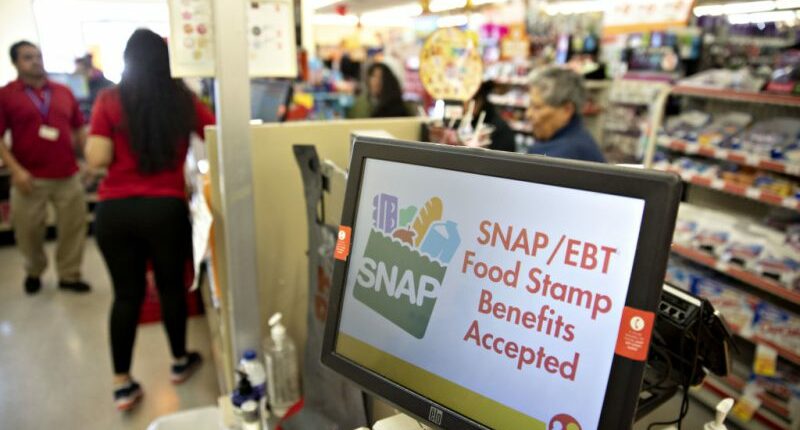Share this @internewscast.com

Related video: Explaining Trump administration cuts to SNAP benefits
(NEXSTAR) – Despite the federal government’s shutdown, changes to SNAP benefits still took effect on the first of the month, coinciding with the start of the fiscal year.
Every October, cost-of-living adjustments are made to the Supplement Nutrition Assistance Program (SNAP).
Previously known as the Food Stamp Program, SNAP aids low-income individuals and families in purchasing groceries. As of Oct. 1, 2025, recipients will see their benefits adjust slightly, as the maximum allotments have increased.
However, in many instances, beneficiaries will only receive an additional $6 per month compared to the previous month. For a family of four, the monthly increase amounts to $19. This reflects an increase of less than 2%, even though grocery prices have risen by about 3% in the past year.
The changes to monthly benefit amount for residents of the 48 contiguous states and Washington, D.C. are:
| Household size | Maximum benefit starting Oct. 1, 2025 | Maximum benefit before Oct. 1 |
| 1 | $298 | $292 |
| 2 | $546 | $536 |
| 3 | $785 | $768 |
| 4 | $994 | $975 |
| 5 | $1,183 | $1,158 |
| 6 | $1,421 | $1,390 |
| 7 | $1,571 | $1,536 |
| 8 | $1,789 | $1,756 |
| Each additional person | $218 | $220 |
In locations like Hawaii, Alaska, the Virgin Islands, and Guam, where food costs are naturally higher, the maximum benefit amounts vary. For instance, in certain areas of rural Alaska, a household of four can receive up to $1,995 to offset food expenses.
Contrarily, SNAP beneficiaries in Hawaii and the Virgin Islands will see no increase in benefits this year. Starting Oct. 1, their maximum monthly payments for a family of four decreased by $34 and $24, respectively.
The amount of SNAP benefits you receive is determined by your household’s income and assets. Typically, eligibility for assistance is based on whether you earn less than $1,696 individually or $3,483 as a family of four per month.
Your work status, immigration status, age and if you have a disability can also impact your ability to receive food aid.
Other changes to SNAP have started to take effect as a result of the One Big Beautiful Bill Act of 2025, passed into law over the summer. Critics say the legislation will result in cuts to the program over time and restrict the number of people who can benefit from it.
Some of the new measures include expanded work requirements, eliminating an obesity prevention program, and requiring states to shoulder more of the cost of administering benefits. Some groups of immigrants who are in the country legally, including refugees, people granted asylum status and survivors of human trafficking, will also be kicked off SNAP.











